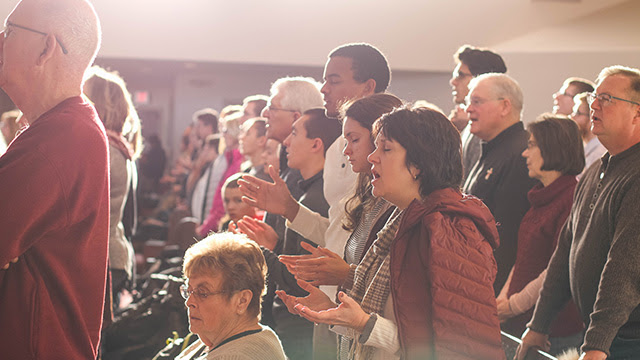
What should you do when you go to Church? If at all possible it is good if you can go to church services each Sunday.
Series: New Believers Guide
What should you do when you go to Church? If you know someone already at church, they can help guide you to activities that would be good for you. If at all possible it is good if you can go to church services each Sunday. Many churches have Bible studies or small groups that meet to study God’s Word; if so these can be a great help to you. You can also begin to help and serve others, even if you are just a very new Christian; maybe there are ways to minister to others at your church.
The Church is the Body of Christ
The Church is Jesus’ own body on the earth. The Bible says, “God has put all things under the authority of Christ and has made him head over all things for the benefit of the church. And the church is his body; it is made full and complete by Christ, who fills all things everywhere with Himself” (Ephesians 1:22-23). That’s what the Bible says, but what does that mean? Think of your own body. Your head tells the rest of your body what to do. If you want your arm to pick something up, it does it. If you want to step on something, your foot obeys the command. It is the same with the Church. We are the representatives of who Jesus is and what He wants done in the world. That means, when people ask the question, “Who is Jesus?”, they can look to the Church and find their answers.
"And each day the Lord was adding to their number day by day those who were being saved." Acts 2:47
"And when they prayed, the place where they had gathered together was shaken, and they were all filled with the Holy Spirit and began to speak the word of God with boldness." Acts 4:31
The Church Needs You
This is a wonderful responsibility. Being Jesus’ body means we act like He acts and tell others about Him. The Bible asks this question, “How can people have faith in the Lord and ask him to save them, if they have never heard about him? And how can they hear, unless someone tells them? And how can anyone tell them without being sent by the Lord?” (Romans 10:14-15). This is the main goal of the Church—to tell others about Jesus that they too may be saved and added to God’s family. You have an important role to play your part. Maybe God gave you the gift of singing so that you can sing about Him to others. Or maybe He made you to be a teacher and teach people about Jesus. Whatever role God has made you to play is a very crucial one, and His body cannot function at its best without you.
"And with great power the apostles were giving testimony to the resurrection of the Lord Jesus, and abundant grace was upon them all." Acts 4:33
How does it help you to think of the church as Jesus' body? When others observe your church family, do they see Jesus? If you don't have a church, you can still talk with other believers!
Alan Zibluk Markethive Founding Member







